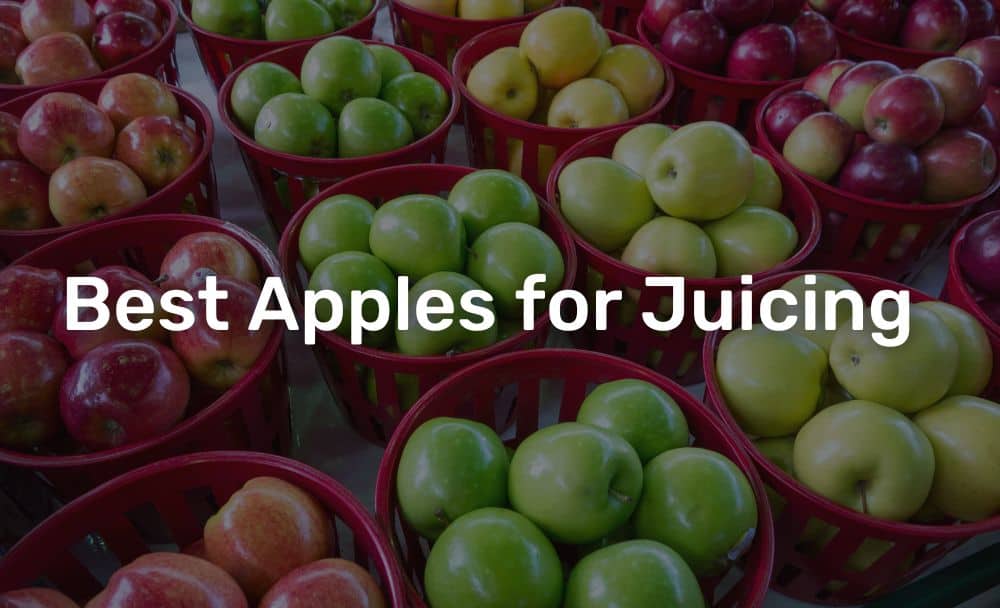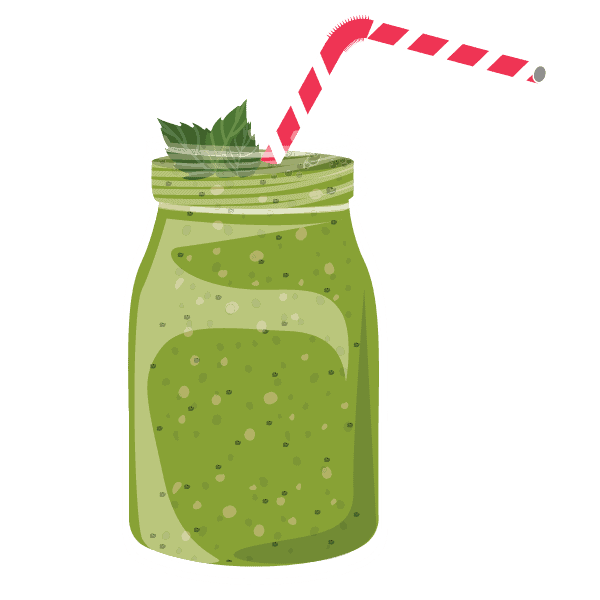Apples are one of the most consumed fruits in the world, and they can be used for many recipes, including juicing. Juicing apples is a great way to enjoy their natural sweetness while getting numerous health benefits.
With so many varieties of apples available, it can be difficult to decide which type is best for juicing. This article will discuss the best apples for juicing and how to select them based on their flavor and nutritional value.
Types Of Apples
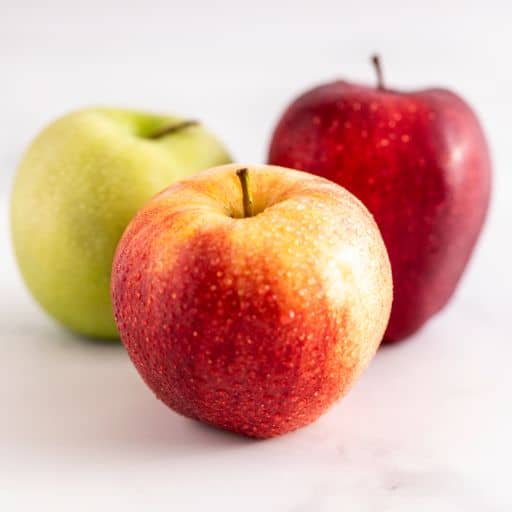
For those looking to make smoothies or juice cleanses at home, selecting the correct type of apple can be instrumental in achieving desired texture and flavor. Different types of apples have unique taste profiles, ranging from sweet to tart.
The best apples for making smoothies or juice cleanses typically include tart green apples such as Granny Smiths or Golden Delicious varieties. These apples provide a high acidic content which is often desirable when creating a drink with a sharp flavor profile.
Other varieties that can be used in juicing recipes include:
- Braeburn Apples
- Honeycrisp Apples
- Fuji Apples
- Royal Gala Apples
- McIntosh Apples
- Ambrosia Apples
- Pink Lady Apples
The number of apple varieties available for juicing is staggering, and new apples continue to be introduced each year as crosses and blends are created.
To make more sense of which apples to choose for juicing, I have broken the most popular varieties into three categories: sweetness, acidity, and astringency.
| Sweetness | Acidity | Astringency |
|---|---|---|
| Golden Delicious | Granny Smith | Braeburn |
| Honeycrisp | McIntosh | Jonathan |
| Royal Gala | Pink Lady | Empire |
Apples like Golden Delicious, Honeycrisp, and Gala are excellent choices for sweetness. They balance the tartness of other ingredients but don’t have a strong flavor.
For acidity, Granny Smith and McIntosh provide a pleasant tang that’s neither overpowering nor too subtle.
For astringency to add a bit of ‘bite’ to your juice blend Braeburn, Jonathan, and Empire, deliver just the right amount of tannic taste.
When choosing apples for juicing purposes, it’s essential to remember what effect you’re trying to create with each variety. Sweetness provides balance and depth; acidity adds brightness; astringency brings complexity and body.
Finding the right combination can create a refreshingly delicious juice drink that is perfect for any occasion!
Nutritional Value of Apples
Apples are a powerhouse of essential nutrients, including vitamins A and C, iron, potassium, and magnesium. Their anti-inflammatory properties can reduce the risk of several chronic diseases.
According to research studies, apples are also effective in improving digestion and lowering cholesterol levels.
The fiber content in apples plays a crucial role in their health benefits. Soluble fiber found in apples can help lower cholesterol and regulate blood sugar levels. Adequate dietary fiber is also linked to reduced instances of colorectal cancer.
However, it is recommended to consume the whole apple instead of just drinking the juice to derive the maximum health benefits.
Including apples in your diet can be a simple yet effective way to boost your health.
Organic apples provide more vitamins and minerals than conventionally grown apples. Studies have shown that organic apples contain more beneficial antioxidants, such as polyphenols and anthocyanins.
These compounds help protect against inflammation, reduce the risk of certain diseases, and improve overall health. Additionally, organic apples are more flavorful and have a firmer texture than non-organic ones.
How To Select The Best Apples For Juicing
When selecting apples for juicing, it is vital to consider the type of juice being made. For instance, tart apples are well-suited for making cider, and sweeter varieties are best for smoothies.
The texture of the apple also plays a role in determining which variety is most suitable; firmer apples produce thicker juice than softer ones.
In addition to considering the type and texture of the apple, it is also essential to select fresh and unblemished fruits. Apples with bruises should be avoided as they affect the finished product’s flavor. Apples should also be checked for signs of mold or rot before using them for juicing.
Shopping at a local farmers’ market or grocery store is recommended when looking for the best apples for juicing. Purchasing from local sources will likely provide fresh fruit that has recently been picked rather than placed in cold storage for some time. You may also find fewer chemicals are used than in conventionally grown produce.
Also, choosing organic apples can help minimize exposure to potentially harmful pesticides and other contaminants.
With these tips, selecting apples that make superior juices is easy. Knowing what to look for and where to shop will ensure that each batch of juice contains only the highest quality ingredients.
How To Prepare Apples For Juicing
To begin preparing apples for juicing, first:
- Clean and inspect the fruit.
- Remove any bruised spots on the skin.
- Check for any signs of decay.
- Wash all apples thoroughly.
- Depending on the size of your juicer, you may need to cut the apples into smaller pieces, typically no larger than 2 inches in width.
- Core the apples if desired. This step is optional but recommended to ensure no seeds or stems are mixed in with your juice.
The final step is processing your prepared ingredients in your juicer or blender.
Using a blender, you must strain the pulp separately from the juice. Otherwise, it will be thick like a smoothie. Use a fine mesh sieve or cheesecloth to collect the pulp. Don’t throw this away; however, there are tips below for using the pulp in other ways, so there’s no waste.
What is the Best Juicer for Apples?
Centrifugal or masticating juicers both work well for making apple juice.
Centrifugal juicers typically yield less juice than masticating models, but they also work faster and require less preparation.
Masticating models tend to produce higher-quality juices with more nutrients retained due to their slower extraction process.
Ultimately, choosing these two types of juicers will depend on individual needs and preferences.
Popular Apple-Based Juice Recipes
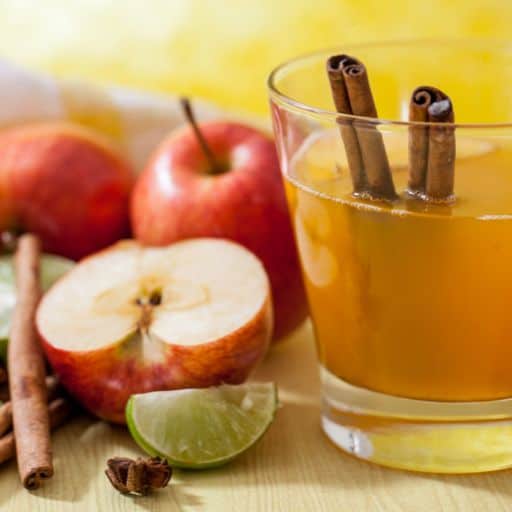
Apple-based juices are delicious and nutritious, making them popular among health-conscious individuals. There are numerous recipes for such juices, some of which can be seen in the table below.
| Recipe | Apples Used |
|---|---|
| Apple Cinnamon Juice | Granny Smith Apples |
| Apple Ginger Juice | Honeycrisp Apples |
| Apple Beet Juice | Red Delicious Apples |
| Apple Carrot Juice | Golden Delicious Apples |
Each apple variety offers its own unique taste profile and nutritional benefits.
- Granny Smith apples are tart and acidic, making them ideal for adding a zesty flavor to apple cinnamon juice.
- Honeycrisp apples are sweet and juicy, perfect for apple ginger juice.
- Red Delicious apples have a mild flavor that is great for blending with earthy flavors like beet in apple beet juice.
- Golden Delicious apples provide a mellow sweetness perfect for balancing out the boldness of carrot juice in an apple carrot juice.
No matter which recipe is chosen, these popular apple-based juices will please any palate while providing beneficial vitamins and minerals. With the right combination of ingredients, it’s easy to make a flavorful and refreshing beverage that will support overall health and well-being.
Storing Fresh Juice From Apples
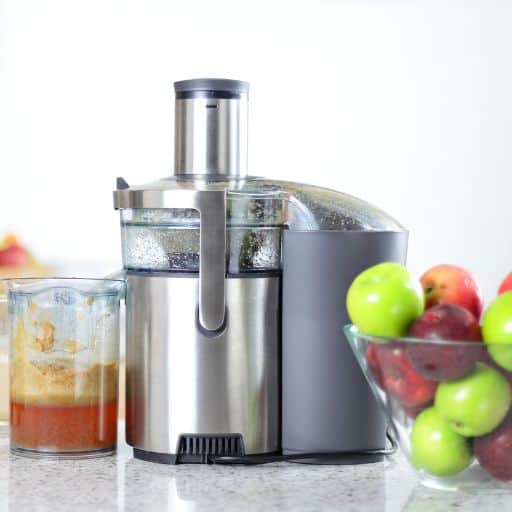
When it comes to juicing apples, freshness is key. To ensure freshly-pressed apple juice is as flavourful and nutritious as possible, it is crucial to store it properly. The following steps can help keep the juice fresh for up to a week.
The first step in storing apple juice is cooling it quickly and efficiently. Freshly-pressed juice should be placed in a refrigerator shortly after juicing to slow the oxidation process. Refrigerated juice should be consumed within a few days; if freezing the juice, it should be consumed within a few weeks.
In addition, freezing the juice allows for greater preservation of vitamins, minerals, and enzymes while still providing a delicious taste.
The second step in storing apple juice is ensuring that air does not come into contact with the liquid. Oxygen causes oxidation which will cause the drink’s flavor to deteriorate over time. Store the juice in an airtight container, such as a glass juice bottle or jar, with an airtight lid to prevent oxygenation.
Additionally, adding one teaspoon of lemon juice per quart will help maintain freshness for up to seven days when stored correctly in the fridge.
Apple juice retains its optimal nutritional value when consumed immediately after pressing, but by taking these precautions, it can still remain nutritious and delicious for several days afterward.
Health Risks Associated With Consuming Excessive Apple Juice
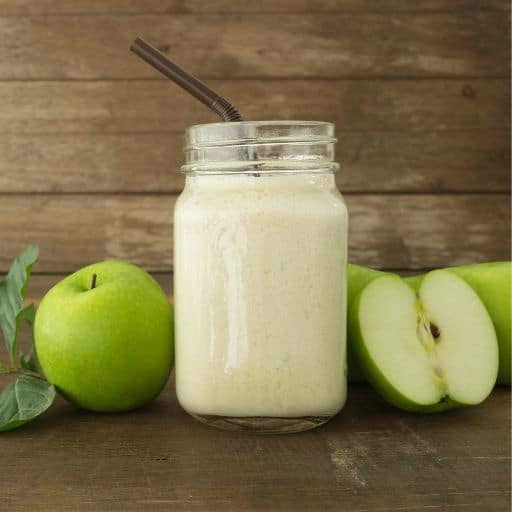
Consuming excessive amounts of apple juice can result in some health risks, although most of these risks are associated with drinking too much of any type of juice.
Consuming large amounts of apple juice and other juices can lead to excessive consumption of calories, carbohydrates, and sugars. This can cause a person to gain weight, leading to obesity-related health issues such as heart disease, stroke, diabetes, and high blood pressure.
Drinking excessive amounts of apple juice may also lead to dental problems due to the high acidity content. This can weaken tooth enamel and increase the risk of cavities and dental erosion.
In addition, consuming large quantities of apple juice has been linked to an increased risk of kidney stones in those predisposed to this condition.
Due to the potential health risks associated with consuming excessive amounts of apple juice, it is essential that individuals limit their intake when possible.
It is recommended that adults drink no more than one cup (240ml) per day, while children should be limited to 1/2 cup (120ml) or less daily.
You should also consider alternative sources to meet your daily nutritional needs, such as fresh fruits and vegetables that provide essential vitamins and minerals without added sugar or calories.
Doing so can help reduce their risk for many potential health issues resulting from overconsumption of apple juice or sweet juice.
Alternatives To Apple Juice
The need for a healthy, refreshing beverage can often lead to exploring other options on the market. Fortunately, numerous drinks can provide an exciting and nutritious alternative to apple juice. Here are a few tasty alternatives:
Coconut water
Loaded with natural electrolytes and minerals, coconut water has become popular for its thirst-quenching flavor. It is perfect for staying hydrated while avoiding added sugars or chemicals.
Orange juice
Packed with vitamin C and potassium, orange juice provides a sweet kick to any morning routine. Go easy with orange juice; it is sweet and high in natural sugars.
Kombucha
This fermented tea drink boasts numerous health benefits, such as improved digestion and immunity support due to its probiotic content. For those looking for tartness in their beverage, kombucha is definitely worth a try!
Beetroot juice
Rich in antioxidants, beetroot juice has gained recognition for its ability to reduce inflammation and help improve circulation throughout the body. Plus, it has an earthy flavor that many people enjoy!
No matter what type of beverage you choose, it is important to remember that all drinks should be consumed in moderation as part of a balanced diet for optimal health benefits.
Reusing Apple Pulp After Juicing
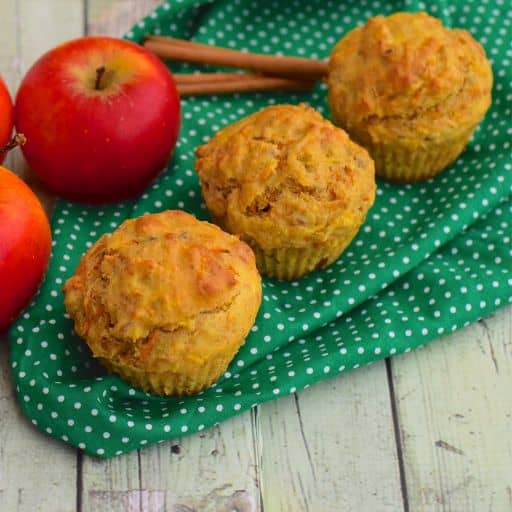
After juicing apples, the remaining pulp can be used for various purposes. Depending on the type of apple used, the pulp can be used as an ingredient for baking, a topping for a dessert, or even a composting material.
| Uses | Suggested Apples | Benefits |
|---|---|---|
| Baking | Honeycrisp, Granny Smith | Adds flavor and texture to baked goods |
| Dessert Topping | Braeburn, Fuji | Enhances sweetness and texture of desserts |
| Composting Material | Golden Delicious | It breaks down quickly and adds nutrients to the soil |
Reusing apple pulp is an easy way to ensure nothing goes to waste after juicing. It allows you to get more use out of their apples while reducing food waste.
Additionally, using apple pulp in baking recipes can add flavor and texture to the finished product.
As a topping on desserts, it enhances the sweetness and creates a pleasant textural contrast.
Finally, when composted, it breaks down quickly and adds essential nutrients to the soil.
Through these methods, apple pulp can be repurposed in various ways that benefit you and the environment.
Organic vs Non-Organic Apples For Juicing
Organic apples are grown without synthetic fertilizers, pesticides, or other chemicals. Non-organic apples may contain traces of these substances and can be genetically modified.
Organic apples are generally more expensive than their non-organic counterparts. However, they offer more nutritional value because they are grown in nutrient-rich soil and free from synthetic chemicals.
Additionally, organic apples tend to have a better flavor that is richer and sweeter due to their natural ripening process. Studies suggest that organic fruits and vegetables may contain higher levels of antioxidants which can help reduce the risk of cancer and other diseases.
On the other hand, non-organic apples may cost less but may not always provide the same level of nutrition as organic varieties. This is especially true if the apples have been treated with pesticides or waxes that could impact their taste and texture when juiced.
It is important to weigh the pros and cons before deciding which type of apple to use for juicing. It is recommended to opt for organically grown produce when possible as it can offer greater health benefits while providing a superior flavor profile compared to conventionally grown produce.
Frequently Asked Questions
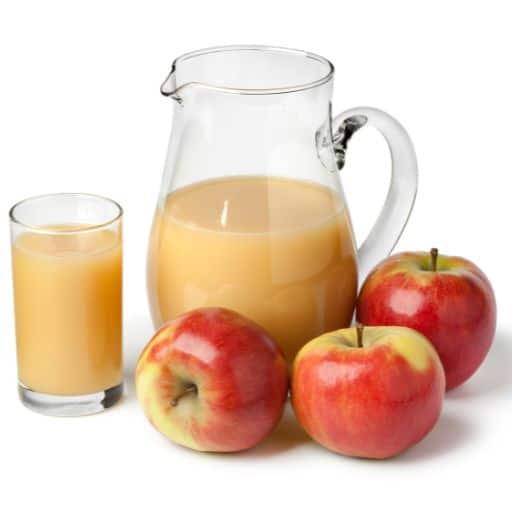
How Long Can Apple Juice Be Stored Before It Spoils?
Fresh apple juice should be stored in an airtight container and consumed within three days for maximum freshness and nutrient density.
What Is The Best Type Of Apple To Use When Making A Smoothie?
A sweet-tart apple like Granny Smith or Honeycrisp is a good option as they balance sweetness and tartness. On the other hand, a sweeter variety like Red Delicious or Golden Delicious apples may not provide enough tartness to make a flavorful smoothie.
The texture is also important when making a smoothie with apples; softer varieties, such as Braeburn or Jazz Apples, blend more easily than crunchier varieties, like Gala or Fuji Apples.
Apples with higher antioxidants, such as Pink Lady or McIntosh, tend to be healthier than other varieties for those looking for health benefits.
Conclusion
Apple juice is a popular beverage enjoyed by people of all ages. It is a healthy, refreshing drink that can be easily made at home with the right ingredients. Apples are the main ingredient in apple juice; some apples are better for juicing than others. Most apple juices can last up to 3 days before spoiling when properly stored.
Apples contain antioxidants that help protect against cell damage caused by free radicals and help to reduce cholesterol levels in the body. For the best benefits, consider eating a whole apple every other day and limiting apple juice consumption.
Overall, apple juice is a delicious drink with many health benefits when consumed in moderation. An allusion to a well-known saying could illustrate this point perfectly: “An apple a day keeps the doctor away,” – emphasizing how important it is to ensure you include apples in your daily diet!

